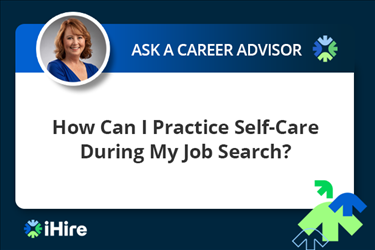- Job Seeker Resources
- |
- Last Updated: February 08, 2023

6 Tips to Help You Battle Job Offer Anxiety
What to do while waiting to hear back after a job interview
Struggling with that waiting-for-job-offer anxiety? You’re not alone. Looking for signs you got the job after an interview is completely normal and thinking about when to follow up after a job interview is common. However, it’s important not to obsess over how your meeting with a potential employer went and stress over minor mistakes you think you made.
That may be easier said than done, however. If you’re worried about a big opportunity and waiting to hear back after a job interview, read on to learn five specific strategies to counteract your job offer anxiety.
1. Follow Up
Instead of wondering where you stand with a potential employer, why not just ask them? It’s difficult to know exactly how long to wait after an interview for a job offer, but when it comes to following up with employers, the general rule is to reach out after a week or two have passed.
Following up with the HR representative or hiring manager can not only put your mind at ease, it may also increase your chances of getting the position. If done correctly, contacting potential employers after an interview reminds the hiring team who you are and shows that you’re a motivated candidate who is highly interested in the job.
2. Keep Moving
Don’t rest on your laurels while you’re waiting for a job offer. Stay productive and take your mind off your job offer anxiety by keeping busy, whether that means taking on side projects, performing consulting work, contributing to professional groups, starting an exercise routine, or simply completing chores around the house.
Depression rates for the unemployed are approximately two times worse than employed Americans. However, being productive is a great way to boost your confidence, and distracting yourself with positive activities will help ensure you don’t dwell on the fact you haven’t received a job offer yet.

3. Have a Backup Plan
Just like you shouldn’t simply wait for the phone to ring, you also shouldn’t stop your job search because you’re waiting to hear back after a job interview. Keep looking for great opportunities and continue to apply for positions you think fit your background and skills.
It’s hard to know for sure how long you’ll have to wait after an interview for a job offer, so keep your ear to the ground and your irons in the fire. Best case scenario – you’ll end up with more than one offer to consider, which is a good problem to have.
4. Give Yourself a Break
While following tips two and three, you should also make time to take a break while waiting for a job offer. Anxiety around your job search can be increased if that’s your entire focus, so take some time for yourself, pursue your favorite hobbies, do some traveling, or reconnect with old friends/peers.
You shouldn’t feel like you’re “goofing off” if you’re not searching for work 24/7. The old adage “looking for work should be your full-time job” is true to a certain extent, but it’s not healthy to spend all your time and energy on a single objective. Recharge your batteries by taking time away from your job search.

5. Learn Something New
One of the best ways you can spend your time while waiting to hear from a potential employer is to expand your skills. Many education sites and well-known universities offer courses for free online and some provide complete certification programs for a relatively low price (you can find many such programs using iHire’s MOOC directory).
Instead of aimlessly searching for signs you got the job after an interview, you can beef up your resume and enhance your expertise. This will enable you to hit the ground running once you get that job you’re waiting for or make you more marketable as you continue your job search.
6. Formulate Your Salary Negotiation Strategy
It may seem presumptuous to begin planning to negotiate your salary before you’ve been officially offered a job, but it never hurts to be prepared. Start by consulting your favorite salary research tool to find out about the average yearly wage for your job title, career level, and area.
Once you’ve investigated appropriate salaries, turn your attention to the different negotiation tactics you can use to make sure that you get the compensation you deserve. You may also find it helpful to practice your negotiation technique with a friend or family member.
No matter what happens in your job search, the most important thing is to stay positive and keep looking to the future. If you end up missing out on that job you interviewed for, move on to the next opportunity. There are plenty of great jobs out there. Find the one that’s right for you.

April 30, 2018
Sign In or Register to access all articles and insider tips for help in your job search.
Search for iHire Jobs
RELATED JOBS
RELATED RESOURCES
Find the Right Job Faster
- Get personalized job matches sent to your inbox every day
- Connect directly with employers before your competition
- Advance your career with expert advice on interviewing, salary negotiation, and more
We value your privacy




